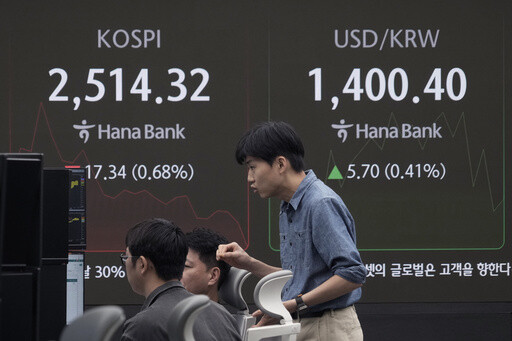
Seoul, South Korea – South Korea’s stock market has suffered a significant decline in recent weeks, with both the KOSPI and KOSDAQ indices hitting their lowest levels of the year. The sharp downturn has been attributed to a combination of external factors, including the election of Donald Trump as U.S. president, and internal challenges, such as concerns over corporate governance and economic policy.
On Wednesday, the KOSPI index plummeted 2.64% to close at 2,417.08, while the KOSDAQ index dropped 2.94% to finish at 689.65. This marks the lowest closing levels for both indices in 2023. The total market capitalization of the KOSPI fell below 2,000 trillion won for the first time since the "Black Monday" in August, indicating a broader market sell-off.
While a previous market downturn in August was attributed to temporary shocks, the current decline is seen as a more concerning trend reflecting deeper underlying issues. Analysts point to several factors contributing to the prolonged bearish sentiment, including:
Weakening semiconductor industry: The sluggish performance of the global semiconductor industry, a key driver of the South Korean economy, has weighed heavily on the stock market.
Trump's protectionist policies: The election of Donald Trump and his anticipated protectionist trade policies have raised concerns about the future of South Korea's exports.
Currency fluctuations: The depreciation of the South Korean won against the U.S. dollar has made South Korean exports less competitive and put downward pressure on corporate earnings.
Loss of confidence in the government and Samsung: Investors have expressed growing concerns about the government's ability to address economic challenges and support the stock market. Additionally, doubts about Samsung Electronics' ability to maintain its technological leadership have eroded investor confidence.
Weak corporate governance: The lack of progress in improving corporate governance and protecting shareholder rights has further deterred foreign and domestic investors.
The government's efforts to stabilize the market, such as the "value-up" program and proposed tax cuts on capital gains, have failed to stem the tide of selling. The sharp decline in the stock market has raised concerns about the broader economic outlook for South Korea.
[Copyright (c) Global Economic Times. All Rights Reserved.]




























